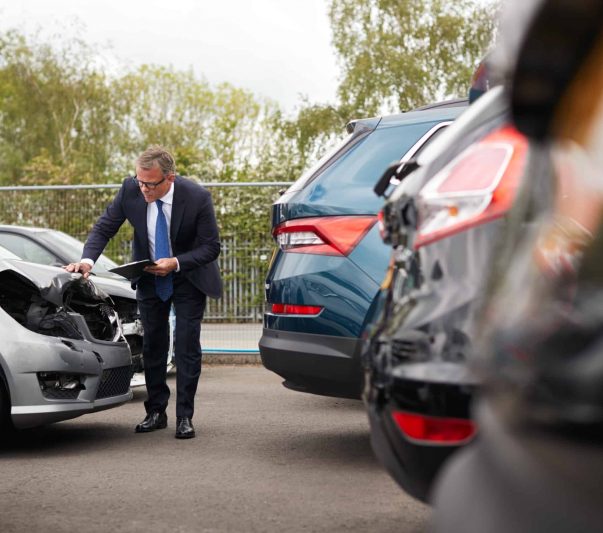Wyoming is an at-fault state for car accidents, meaning that you can sue the at-fault driver to recoup your medical bills, car repair costs, and other damages. Wyoming does use modified comparative negligence statutes, which allow for shared fault. If you are less than 50 percent responsible, you can collect damages from the other driver (or, in most cases, their insurance company).
Key Takeaways
- Wyoming is an at-fault state for car accidents, meaning you can sue the at-fault driver for damages, but shared fault is possible under the state’s modified comparative negligence laws. If you’re partially at fault, your compensation will be reduced accordingly.
- A citation doesn’t automatically mean you can’t recover compensation, but it may affect the amount you receive. If you’re ticketed, your percentage of fault could impact your settlement, but it’s still possible to argue that the other driver was primarily responsible.
- Car accident cases in Wyoming are typically settled out of court, but if negotiations fail, litigation may be necessary.
Does a No-Fault Accident Go on Your Record in Wyoming?
A “no-fault accident” is an insurance term that describes an accident in a state with no-fault accident laws. In a no-fault state like Florida, for example, everyone is required to buy personal injury protection (PIP) insurance and use it if they are in an accident. “No fault” doesn’t really mean that no one is at fault in an accident, only that determining fault isn’t necessary to collect compensation from an insurance company. Because Wyoming is an at-fault state, the insurance company will need to be convinced that their client was at least mostly at fault for the accident.
However, none of the above has anything to do with your driving record. Any accident you’re involved in as a driver will go on your driving record, but if you are not ticketed for the crash, it probably won’t have a significant effect. Unlike many states, Wyoming doesn’t use a “points” system for driver’s licenses. However, accidents and moving violations are recorded on your driving record, and if you have too many moving violations, your license can be suspended. If you are ticketed for the accident, this will count as a moving violation.
Can You Still Recover Compensation If You Were Ticketed?
While an insurance company’s decision to take responsibility for a client’s accident or not doesn’t affect your driving record, the police report from your crash could affect your ability to collect compensation. A citation doesn’t necessarily mean that you won’t be able to recover at all. You can still argue that the other driver was primarily at fault. Still, you will probably receive a reduced settlement due to the rules of comparative negligence statutes – your percentage of fault is deducted from the final award. It would be easier to argue the other party was primarily responsible if they were also ticketed.
If you think your ticket was unfair – in other words, you didn’t do the action you were ticketed for – you can contest your ticket in court. Do not argue with the officer at the scene or refuse to take the ticket; instead, show it to your car accident attorney.
Does an Accident Report Say Who Is at Fault in an Accident?
No, but it contains a wealth of information that any involved insurance companies may use when discussing who is responsible for the crash. The accident report is generated by the officer who responded to your accident and is usually available within a week to ten days. You could obtain a copy by contacting the appropriate law enforcement agency – usually a city police department if your crash was within city limits. Accidents in the more rural parts of the state may be handled by the state police or a county sheriff’s department.
While it’s not the officer’s job to determine fault in a car accident – the insurance companies will do this to decide who will pay damages – their report will be very important to your case. The officer is tasked with describing the damage to each vehicle and explaining the events that happened from each driver’s perspective. Additionally, the report form contains a box for the officer to draw a picture of how they believe the crash occurred. There is also a place to note whether any citations were issued.
If the Police Didn’t Cite Anyone, Does That Mean No One Was at Fault?
From the insurance company’s perspective, no. It means the responding officer probably received two conflicting reports about what happened from the two drivers. If there are other witnesses at the scene, an officer will interview them in an attempt to figure out whose story is correct. But if there are no other witnesses and the officer doesn’t observe any other evidence to clear things up, they might decide they have insufficient evidence to cite anyone.
When an insurance company receives such an inconclusive police report, the insurance adjuster will usually err on the side of not paying the liability claim. In other words, they will be inclined to believe their client was not at fault because if the client isn’t liable, the insurance carrier doesn’t have to pay anything. If you’re the victim in this situation, you will have to fight to prove the other driver was responsible.
Do I Have to Go to Court to Prove Fault in My Car Accident Case?
Most likely, no. The vast majority of car accident cases are settled out of court. We will negotiate with the other driver’s insurance company until we reach a reasonable settlement for the client. In a few cases, the insurance company may be unwilling to negotiate or to agree on a fair amount. If this happens, we are prepared to fight for your rights in court. You may also have the option to accept a smaller settlement rather than go through the stress and time commitment of a trial. This is entirely your decision, and we will answer questions and support you in your choice.
Where Can I Get Help with My Car Accident?
Please contact the Olson Personal Injury Lawyers today for a free consultation about your car crash. Attorney Sean Olson will personally review your case, answer your questions, and detail your options. If there is a way to pursue compensation for your damages, we’ll find it.






